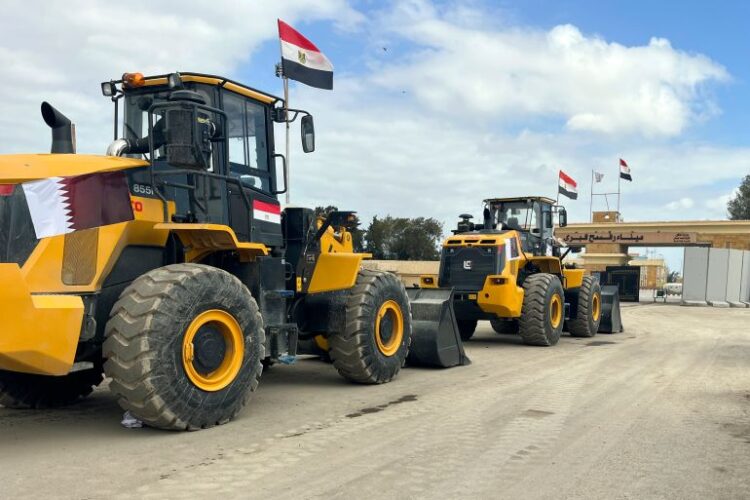A decisive decision by Egypt involves launching a complete reconstruction plan to heal war-damaged Gaza territory while keeping its population rooted within the region.
The plan announced by Egypt represents a direct opposite to U.S. President Donald Trump’s debatable proposition for moving Gaza’s population to neighboring countries.
The recent announcement from President Trump calls for the movement of substantial Gaza inhabitants to Egypt and Jordan alongside other nations under American administration of territory reconstruction. The proposal faces strong international criticism because supporters consider it illegal forced relocation that violates international law.
Egypt and Jordan have officially dismissed plans for Palestinian relocation because they remain dedicated to both security in the region and Palestinian human rights protection.
Egyptian officials have developed a detailed “comprehensive vision” which centers on improving the situation for Gaza’s live population. The comprehensive strategy aims to reconstruct fundamental infrastructure to normalize conditions in Gaza while promoting sustainable development of its population.
The main element of this strategy involves building “secure areas” which serve as temporary shelters for displaced persons who must stay in Gaza during its reconstruction phase.
Egypt conducts talks with European countries along with Saudi Arabia and Qatar and United Arab Emirates to secure support for organizing a conference about Gaza reconstruction. The goal behind this initiative is to obtain adequate financial backing and assets needed to repair the heavy damage from the long conflict which might need $46 billion to reconstruct.
The main component of Egypt’s proposal focuses on creating a new organizational structure for Gaza administration. The plan introduces a political framework without Hamas or Palestinian Authority governance which would implement a civilian leadership supported by personnel drawn from former Palestinian Authority police departments.
The method aims to establish both political stability and it focuses on protecting reconstruction work from current political disputes. Hamas has apparently accepted a plan for government leadership that excludes the militant group which indicates a possible transition toward building a unified rebuilding process.
The Egyptian plan receives internationally moderate approval. The governments of France and Germany support a Gaza reconstruction plan that protects population demographics through rights-based resident protections. Regional Arab countries will gather to establish collaborative initiatives for Gaza recovery as they share the commitment to solve the humanitarian crisis through means other than displacement.
The necessity to create a successful reconstruction plan becomes more critical because Gaza faces enormous destruction which has destroyed multiple homes along with numerous schools and hospitals.
The Egyptian plan implements instant assistance by constructing emergency shelters before launching lengthy developments which will create economic growth along with enhanced living standards within Gaza’s population. In-situ rehabilitation remains the core goal of Egypt’s plan because it protects Gaza’s social structure while avoiding more tension between neighbors.
Egypt’s reconstruction proposal will succeed in the evolving context by obtaining international backing while handling the diverse political dynamics across the Middle East. This movement demonstrates substantial progress in sustainable response to Gaza’s problems by providing a viable replacement for forced relocation and outside governance.





